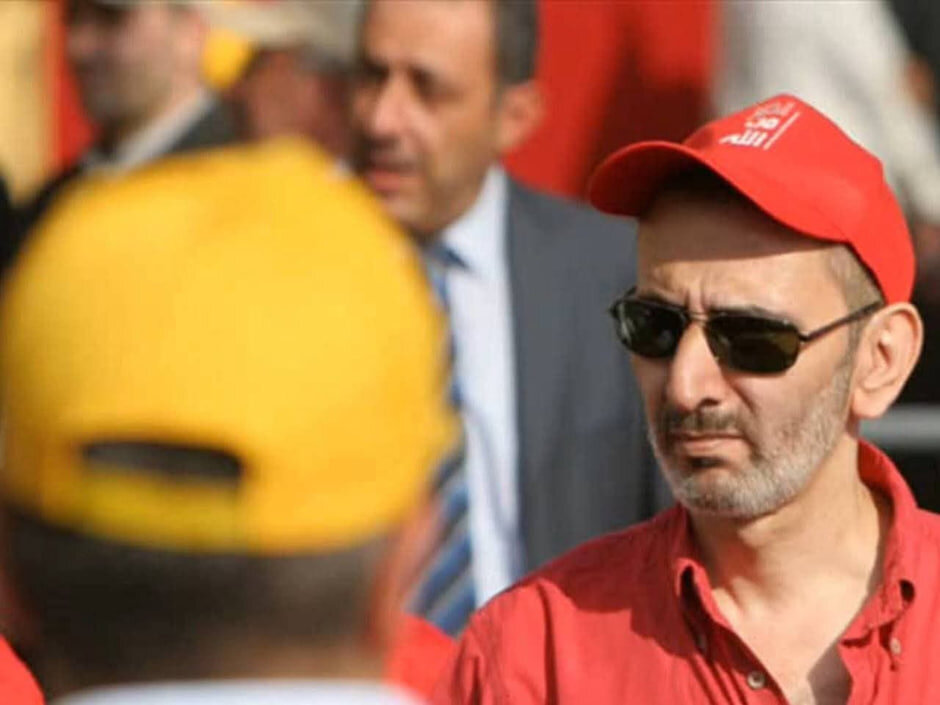Farewell Ziad Rahbani, icon of resistance art

BEIRUT — On Saturday, the son of the venerable Rahbani school of art, the revolutionary artist Ziad Rahbani, died at the age of 69 after a bitter struggle with illness.
Ziad Rahbani was born in January 1956 to artist parents Assi Rahbani and Fairuz.
The late Rahbani combined musical and theatrical genius, boldly addressing themes of identity, politics, and resistance. His first literary work was published at the age of 12 in the late 1970s.
He worked as a radio broadcaster, presenting satirical programs critical of politics, society, and corruption. He was also a journalist, writing for newspapers such as Al-Nidaa, An-Nahar, and Al-Akhbar, where he was known for his leftist pro-Resistance stances and his absolute and intense love for Hezbollah’s martyr Secretary General Sayyed Hassan.
Ziad Rahbani’s last words were: “Living without Sayyed Hassan Nasrallah is hell. If I die, it will be out of grief over his loss, not from illness.”
Rahbani met Sayyed Nasrallah twice. During their first meeting, he described himself as very shy, filled with feelings of astonishment, embarrassment, and shock.
During their second meeting, he said in a harsh southern accent, “I came today and I want to stay with you. I don’t want to leave. I want to live with you. If you want, I can pray and fast like you (Shiite Muslims). Please, let me stay with you.”
Sayyed Nasrallah smiled, telling him, “The world loves you because you are not Shiite. We are people destined for injustice. Stay Christian so you remain popular. It is enough for you that you are with the Resistance and a genuine artist.”
In one of his interviews, he said that his mother, Fairuz, loves Sayyed Hassan Nasrallah, asserting that “attacking Fairuz for cherishing Sayyed Nasrallah is in favor of Israel,” emphasizing, “If Fairuz had not been with the Resistance, there would have been a problem between us, and I would not have composed her songs.”
“I support Hezbollah’s choices, even if it goes to fight in the farthest reaches of the world (referring to defending Syria 2011—2018 in the face of takfiri militants)” wondering, “How could Hezbollah not go to Syria, when it is thus defending the entire region against the attack it is facing?”
The late Rahbani believed that the fate of Syria and Lebanon is common, and that there can be no crisis in Syria without Lebanon being affected. Rahbani predicted that there would be further destruction in Syria, but that there would be an end.
Hezbollah mourned the death of Rahbani. It said: “Through his art and his stances, he embodied a model of purposeful art in the service of the nation and humanity.”
Hezbollah noted that Rahbani “painted on his stage the true image of the homeland that every person dreams of—a homeland of unity, dignity, and coexistence. He became a source of inspiration for all free people in defending just causes.”
Hezbollah affirmed that Rahbani “with his immortal legacy, will remain a beacon of hope for future generations, drawing from the wellspring of his art and thought to build a free and resilient homeland.”
Many officials and political, social, and artistic figures mourned his death. President Joseph Aoun said Rahbani “was not just an artist, but a complete intellectual and cultural figure.” The president added, “More than that, he was a living conscience, a rebellious voice against injustice, and an honest mirror for the suffering and marginalized. He wrote about people’s pain and played on the strings of truth, without equivocation.”
Prime Minister Nawaf Salam stated that “with the passing of Ziad Rahbani, Lebanon loses an exceptionally creative artist and a free voice who remained loyal to the values of justice and dignity and embodied a profound commitment to human and national issues.”
For his part, Parliament Speaker Nabih Berri said, “The melody is sad, the lyrics are heartbreaking, and a black curtain has fallen on a Rahbani-led, humane chapter that never dies.”
Ziad Rahbani lived as a tributary of honorable, loyal fighters. He did not exploit his art and fame to climb on the shoulders of his people and comrades. He foresaw a future of imperialist and Zionist subservience, as he was an astute reader of a changing world in an age of decadent art.
The late artist revealed he had repeatedly declined invitations from the U.S. Embassy in Beirut.
He was the Lebanese internationalist who believed until his last breath that “liberating Palestine is possible, even if it takes a very long time.”
The Popular Front for the Liberation of Palestine mourned the artist, noting that he “was a living national conscience and an intellectual engaged with the causes of his people, siding with the poor and rejecting injustice.”
Rahbani lived as an icon of cultural rebellion and a genius of satirical political theater. Lebanon lost a stubborn and bold creator who was the voice of the poor and the embodiment of the memory of a nation riddled with wounds. He was one of the most venerable icons of Lebanese art, thought, and humanist philosophy. He refused to compromise his principles for the dirhams offered by the Persian Gulf's anti-Resistance media empire.
Leave a Comment